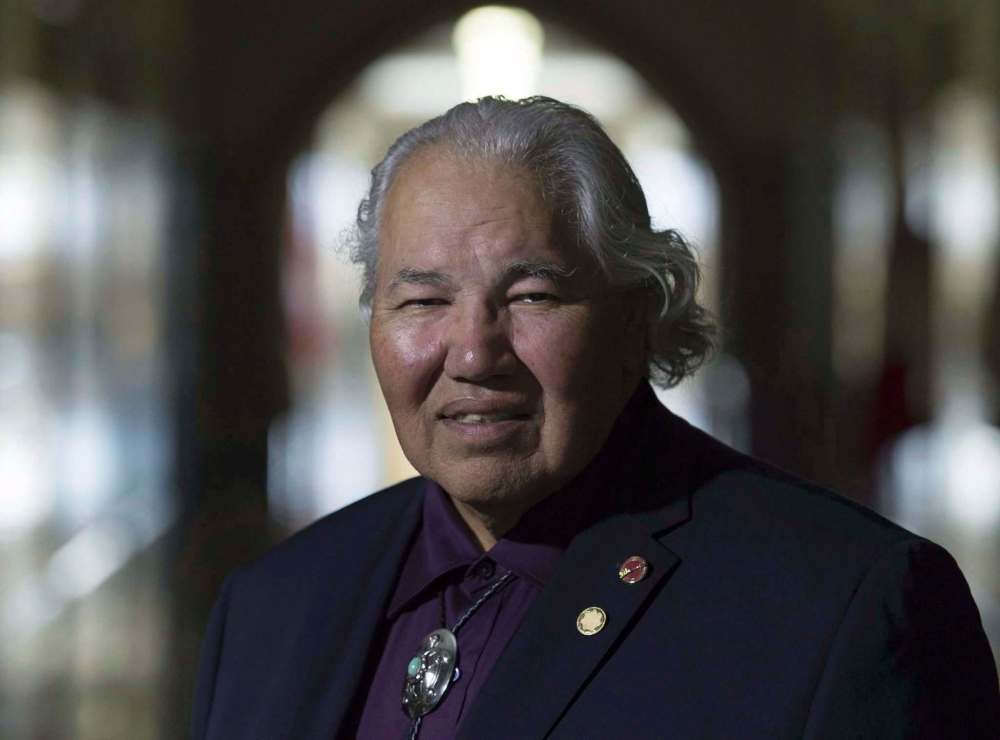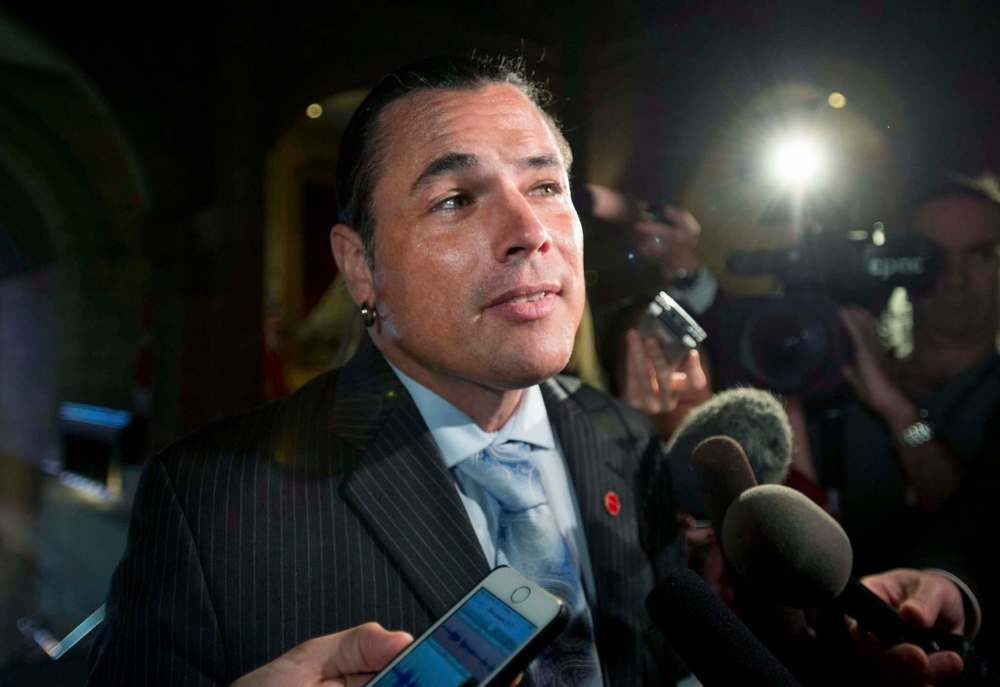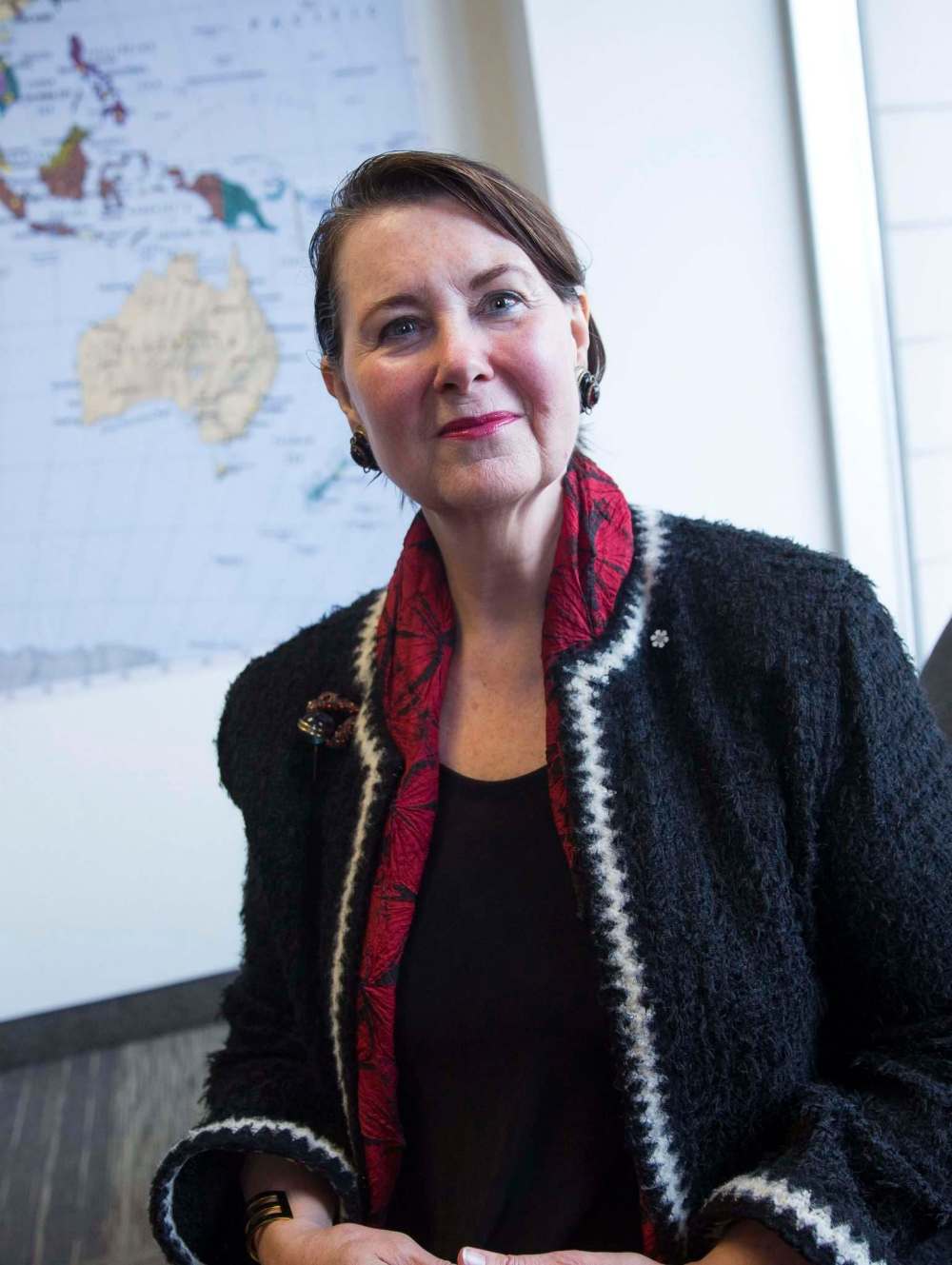Manitoba senators win fight over Indian Act
Provision removing gender discrimination to be bolstered
Advertisement
Read this article for free:
or
Already have an account? Log in here »
To continue reading, please subscribe:
Monthly Digital Subscription
$1 per week for 24 weeks*
- Enjoy unlimited reading on winnipegfreepress.com
- Read the E-Edition, our digital replica newspaper
- Access News Break, our award-winning app
- Play interactive puzzles
*Billed as $4.00 plus GST every four weeks. After 24 weeks, price increases to the regular rate of $19.95 plus GST every four weeks. Offer available to new and qualified returning subscribers only. Cancel any time.
Monthly Digital Subscription
$4.99/week*
- Enjoy unlimited reading on winnipegfreepress.com
- Read the E-Edition, our digital replica newspaper
- Access News Break, our award-winning app
- Play interactive puzzles
*Billed as $19.95 plus GST every four weeks. Cancel any time.
To continue reading, please subscribe:
Add Free Press access to your Brandon Sun subscription for only an additional
$1 for the first 4 weeks*
*Your next subscription payment will increase by $1.00 and you will be charged $16.99 plus GST for four weeks. After four weeks, your payment will increase to $23.99 plus GST every four weeks.
Read unlimited articles for free today:
or
Already have an account? Log in here »
Hey there, time traveller!
This article was published 09/11/2017 (2997 days ago), so information in it may no longer be current.
OTTAWA — The federal Liberals say they’ve acquiesced to Manitoba senators’ push to eliminate sex discrimination in the Indian Act. But some in the Red Chamber are pushing Ottawa to go even further.
After a dramatic standoff led by Sen. Marilou McPhedran and supported by Sen. Murray Sinclair, the Liberals effectively rewrote a bill they tabled a year ago, pledging Tuesday the legislation would now “enshrine in law the removal of all gender discrimination in the Indian Act.”
Ottawa introduced Bill S-3 a year ago, to restore Indian Act status to women who lost it by marrying non-Indigenous men, as well as their descendants. The bill came in response to an August 2015 court ruling, saying the Indian register would have to shut down if it didn’t stop such discrimination.

The Liberals wrote the original version of Bill S-3 to deal with those who lost their Indian status from 1951 onward. But in May, McPhedran amended the bill at the request of First Nations activists. Dubbed the “all-the-way” amendment, the change would restore status to all cases dating to 1869.
Proponents claimed it would rectify discrimination against women, and possibly extend federal mental-health and dental benefits to numerous Manitobans. McPhedran and two Indigenous senators convinced most of their colleagues to support that change.
This spring, the Liberals warned of apocalyptic scenarios, causing as many as two million Canadians to flood First Nations band rolls and exhaust their services. They claimed their original bill would make 35,000 people eligible for status, and start a consultation process, an idea many Indigenous groups met with cynicism.
This summer saw a dramatic showdown involving sobbing MPs, rare procedural moves and a stinging court rebuke, before a judge gave Parliament until Dec. 22 to pass the bill.
On Tuesday, the government’s representative in the Senate, Peter Harder, introduced multiple changes, which would bring the original bill into force, but also hold the Liberals’ feet to the fire to deal with those who lost their status prior to 1951.
The changed bill would have the government consult with First Nations groups on how to bridge the gap, and report to Parliament on that process within five months, a year, and then three years of the bill becoming law.
Harder urged his Senate colleagues pass the bill Thursday, before a 10-day break.
The Liberals’ changed prompted applause from the Red Chamber, and support from some of its fiercest critics.
“I almost broke down and cried,” Sen. Lillian Dyck told the chamber, her voice shaking. “It’s a giant leap forward for First Nation women, and their descendants.”
On Wednesday, Sen. Sinclair cautioned parliamentarians will have to hold the government to its “opened-ended” pledge to rectify earlier discrimination, but voiced his support for the new bill.
“Any attempt to amend it, or delay debate on it, is simply going to make things worse,” he said.

But others are pushing for a deadline to implement the changes, with Sen. Patrick Brazeau fretting a new government might not take the consultation process as seriously.
Sen. Serge Joyal, a constitutional lawyer, said the new bill’s phrasing wouldn’t pass muster if it came out of a human rights settlement, because it has no deadline.
“If the government is moving forward in good faith, why rely on the role of parliamentarians to push the government, instead of the government taking upon itself the responsibility?” he asked.
Sen. Kim Pate said she was “deeply worried… the motion before us asks Indigenous women and their descendants to take another risk, to settle for smaller victories now.”
The Free Press has learned at least one senator will ask the Red Chamber to convene a committee of the whole, in the hopes of amending the bill to implement a two-year deadline.
Harder also publicly tabled demographic research Tuesday, which did not do much to clarify how many people could be eligible for status under McPhedran’s amendment.
Over the summer, the Free Press revealed Ottawa had commissioned Winnipeg demographer Stewart Clatworthy to tabulate how many people would be eligible for Indian status under four iterations of the bill.
“The government is making this demographic data public in the interest of transparency, but does not believe it is a reliable way to estimate its potential impacts,” Harder told the Senate after tabling the $28,000 research.
As of 2016, there are 1.02 million Canadians eligible for Indian status. The original bill seems to add an extra 34,355 people, while McPhedran’s bill would likely raise that number to 86,917 people becoming eligible for Indian status.
But that option seems to include members of the Métis Nation, who are not eligible for Indian status, and have resisted being folded into general First Nations categories. It includes all people who describe themselves as First Nations or Métis, and Harder stressed not all of them would necessarily apply for Indian status.
Clatworthy’s reports outline four options of varying complexity.

Ottawa could not make anyone available Tuesday or Wednesday to explain the various categories, and has told Clatworthy to stop giving media interviews. Clatworthy referred the Free Press to senior bureaucrat Eric Guimond, who did not returns voicemails either day.
His reports cites ambiguity in McPhedran’s amendment, which hampered estimating how many people it would effect.
Clatworthy took a look at the 2016 census data released this month, and found the number of Manitobans eligible for Indian status could double under the amendment — but that number would include Métis people (whose leadership suspect many Canadians are falsely claiming Métis roots).
In a stricter scenario, the “all-the-way” amendment would increase the number of Manitobans with Indian status to 89,897 from the current 66,211.
On Tuesday, the office of Carolyn Bennett, minister for Crown-Indigenous affairs, said it’s hopeful the Senate passes the bill, which would sidestep these complex calculations.
“Our government is committed to working with First Nations, parliamentarians, impacted individuals and experts to ensure all gender-based discrimination is eliminated from registration under the Indian Act,” wrote a spokeswoman.
The Liberals and most Indigenous senators have the end-goal of ending the Indian Act, but for now it’s seen as one of the few tools for enforcing First Nations treaty rights.
dylan.robertson@freepress.mb.ca

